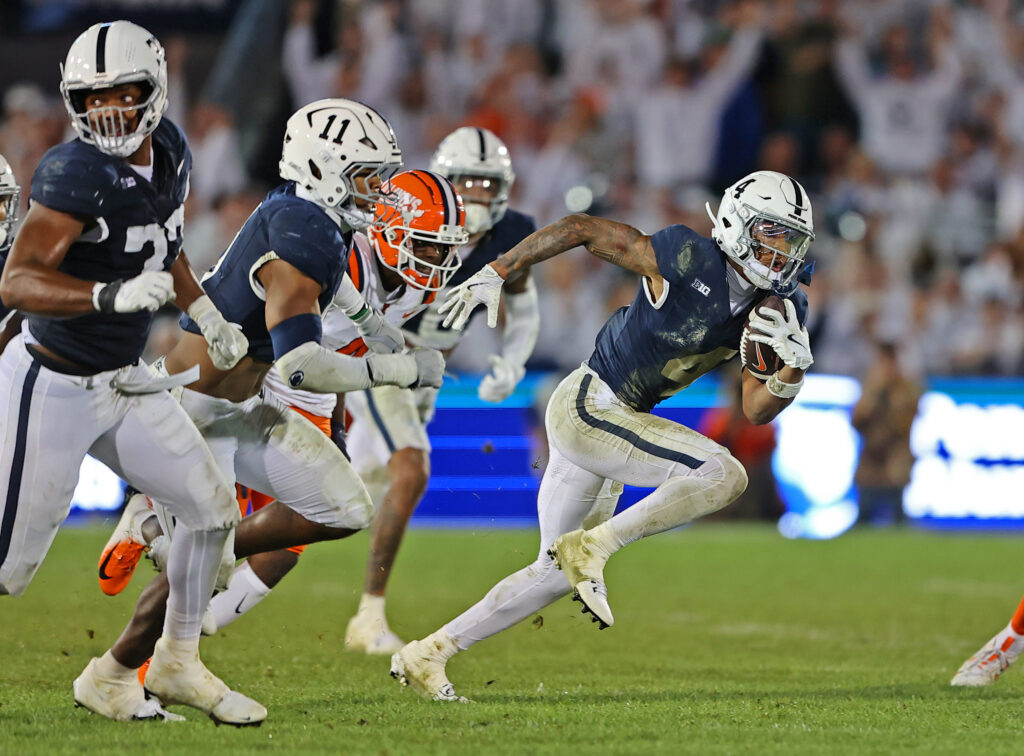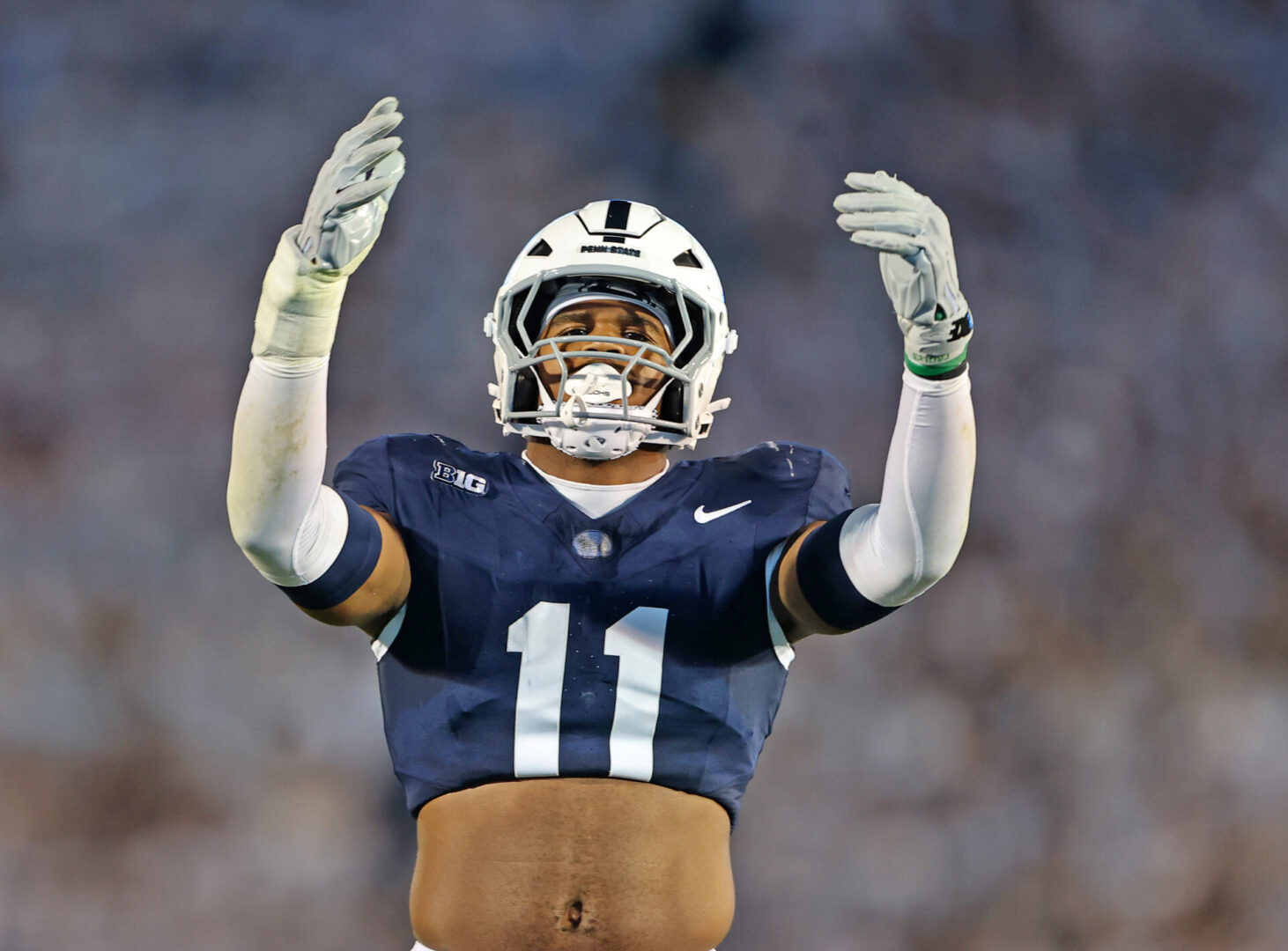Abdul Carter saw it the whole way. He waited patiently for the moment Illinois quarterback Luke Altmyer would leave the pocket, and that’s when he snapped. Carter raced toward Altmyer, bringing him down and knocking the ball out for a strip-sack that sealed Penn State’s 21-7 win over Illinois on Saturday.
Carter had been lauded as one of the nation’s top defensive players and a projected first-round NFL Draft pick entering the fall. But through his first three games since switching from linebacker to defensive end, he seldom lived up to the hype. That was until Saturday, when Carter tallied 3.5 tackles for loss, 1.5 sacks, a forced fumble and a pass breakup.
“It feels great,” Carter said. “When you put all your work into the game, all your time into the game, you work your whole life with these situations and when you come out here and make plays, you just get that relief of all the work you put in.”
It was three weeks ago, after a narrow 34-27 victory over Bowling Green, that James Franklin made a point of emphasis. He believed too many defensive players were trying to make plays rather than simply play their role within the defense. It didn’t take much guessing to assume that Carter was one of these players, especially after he owned up to it postgame.
That appears to be a thing of the past. Carter was willing to switch between defensive end and linebacker on Saturday, and his humble approach to his role within the defense has only helped his production. Since pledging to be “unselfish” and “play within the system,” Carter has combined for 11 tackles and has at least a sack in each of the past two games.
“As long as I do my job, the plays will come to me,” Carter said. “I don’t want to try to do too much, and mess the whole defense up.”
An undisciplined defense
A.J. Harris raced into the end zone untouched. He never could’ve imagined the first interception of college career would be a game-sealing pick-six. “It was a blessing,” Harris said of the play. But because of an unnecessary block in the back by cornerback Zion Tracy, the touchdown was wiped. Free points were taken away in a one-score game for no reason at all.
The penalties have already been an issue for the Nittany Lions’ defense, and Saturday saw that trend continue. They were called for six flags on Saturday, and two offsides calls came against Carter.
“If you take away all the penalties we got pre-snap and post-snap, we’d have been even more dominant,” Carter said. “So once we clean that up, we can tap into a whole nother level.”

How exactly do penalties get fixed? Franklin said that more discipline off the field will “transfer” on the field. He knows the trend will only continue if an immediate change is made by him and the coaching staff.
“As good as we played, we made it a lot harder than it needed to be with silly penalties, and that’s on me,” Franklin said. “This whole yelling at the kids, that’s on me and us as coaches. We gotta provide more discipline all the time. Not just punitive penalties, when they jump offsides — being more disciplined by how they are in meetings, how they sit up, how they take notes, all of that.”
Kobe King, one of the team’s starting linebackers, said there’s an accountability system already in place. While he wouldn’t disclose exactly what it was, King admitted that penalties are something the team will need to “emphasize” this week.
“I’m not really worried at all. Guys are disciplined, but we were a little less disciplined today with the amount of yardage we gave on penalties. But it’s just a day-by-day thing. We gotta get better at it, it’s something that we can control,” King said. “Going forward, it has to change.”



